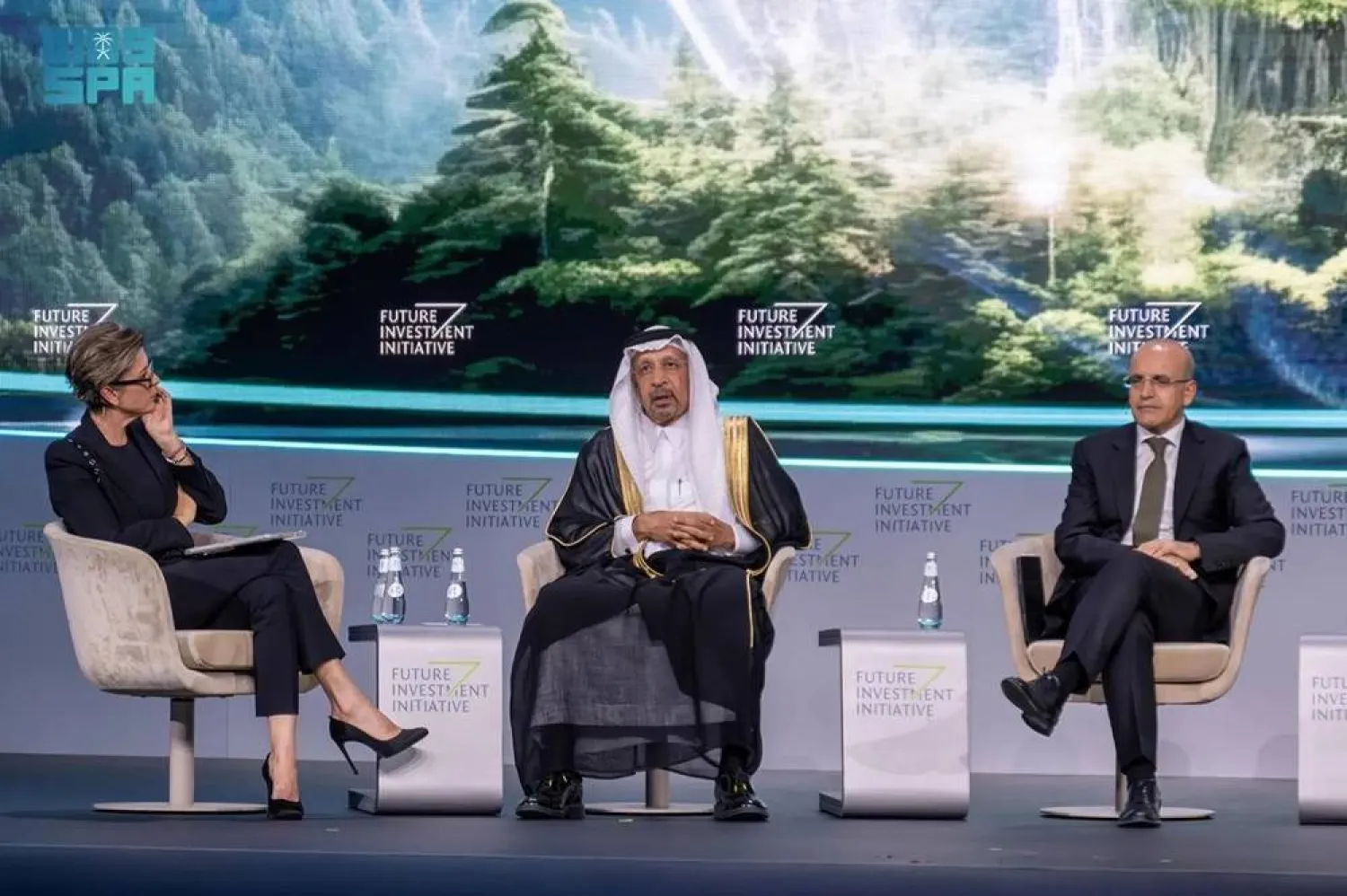A plenary session at the eighth edition of the Future Investment Initiative (FII8) Conference in Riyadh addressed the significance of resetting the global balance in the face of market fluctuations and uncertainty regarding interest rates.
Titled "Can leaders deliver optimism over caution?", officials on Tuesday tackled the role of artificial intelligence in driving digital transformation and shaping the future of the world, with a particular emphasis on risk management strategies and the necessity of promoting innovation and increasing investments to achieve sustainable growth.
Saudi Minister of Investment Khalid Al-Falih stressed that Saudi Arabia is striving to ensure security and prosperity, successfully addressing various global geopolitical tensions due to the robustness of its economy.
The Saudi economy is well-equipped to confront challenges, he added, noting a 70% increase in GDP since the launch of the Kingdom Vision 2030, as well as the achievements within the G20, where Saudi Arabia achieved the second position for the fastest growth among the member economies.
He highlighted the substantial increase in foreign direct investments, surpassing last year's target of $26 billion, alongside a tenfold rise in licenses for international companies compared to pre-Vision 2030 levels, indicating considerable advancement in attracting foreign investments to the Kingdom.
Al-Falih added: "The Regional Headquarters Program (RHQ) had a goal of attracting 500 regional headquarters by 2030. However, it surpassed this objective by attracting 540 international companies that selected Riyadh as regional headquarters."
"The Kingdom has established itself as an economic hub in the Middle East, and it has made significant strides in the tourism sector, including the registration of 100 million tourist visits in the past year and a tenfold increase in the number of licenses for foreign investors since the launch of Vision 2030," he said.









